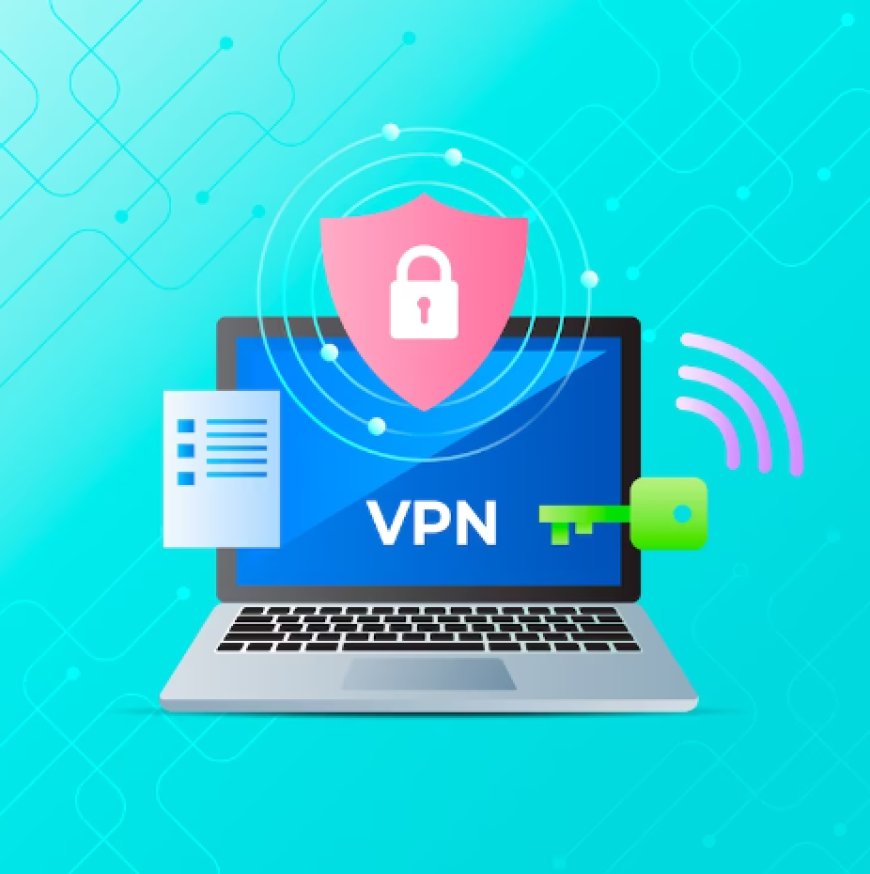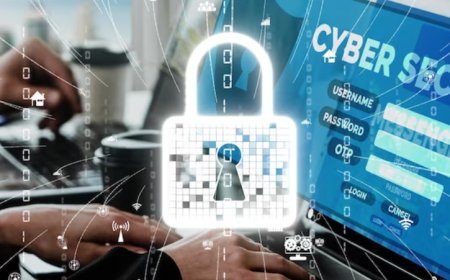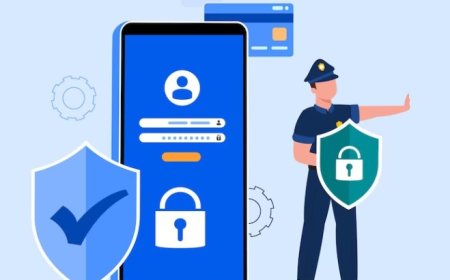Exploring the World of Virtual Private Networks (VPNs)
Understand VPNs, security, privacy, encryption, access, speed, services, benefits, providers, technology, and remote work. Enhance online safety

In the digital world, Virtual Private Networks (VPNs) play a crucial role in securing our online connections and protecting our privacy. A VPN is a technology that establishes a secure and encrypted connection between a user's device and a remote server, creating a private network over a public network such as the internet. This enables users to access the internet securely and privately, shielding their online activities from prying eyes and potential threats. VPNs have become an essential tool for individuals and organizations alike to safeguard their sensitive data and maintain anonymity while navigating the online realm.
Importance of VPNs in today's digital landscape
-
VPNs encrypt the internet traffic, making it difficult for hackers, ISPs, and government agencies to monitor and track users' online activities.
-
VPNs allow users to securely connect to their corporate networks or access sensitive data from remote locations, protecting valuable information from unauthorized access.
-
VPNs create a secure tunnel, preventing hackers from intercepting data transmitted over public Wi-Fi networks, reducing the risk of data theft or eavesdropping.
-
VPNs enable users to bypass geographic restrictions and access content that might be blocked or limited in their location, offering greater internet freedom and access to global resources.
-
VPNs encrypt the communication channels, ensuring the privacy and integrity of voice and video calls, making them resistant to interception or surveillance.
-
VPNs provide a means to bypass internet censorship and evade surveillance in countries with restrictive internet policies, allowing users to access the internet freely and express themselves without fear of retribution.
How VPNs Works
VPNs work by employing encryption and tunneling techniques to establish a secure connection between a user's device and a remote server. Encryption ensures that data transmitted over the internet is encoded, making it unreadable to unauthorized parties. Tunneling involves encapsulating the encrypted data within another packet, creating a secure "tunnel" for the data to travel through.
VPN protocols govern the way data is transmitted and secured within the VPN tunnel. Different protocols offer varying levels of security, speed, and compatibility with devices and networks.
The VPN server acts as the intermediary between the user's device and the internet. It receives encrypted data from the client, decrypts it, and forwards it to the intended destination. The client, typically a software application or built-in VPN functionality on a device, establishes a connection with the VPN server, encrypts data before transmitting it, and decrypts incoming data from the server.
Benefits of Using VPNs
Using VPNs offers several benefits to users, including:
-
VPNs encrypt data, preventing unauthorized access and protecting sensitive information from being intercepted or monitored. This is especially crucial when connecting to public Wi-Fi networks or accessing the internet from untrusted locations.
-
VPNs hide users' IP addresses by routing their internet traffic through remote servers. This helps maintain anonymity and makes it difficult for websites and online services to track users' online activities.
-
VPNs enable users to bypass geographic restrictions imposed by content providers or governments. By connecting to servers in different locations, users can access websites, streaming services, and online content that may be otherwise inaccessible in their current location.
-
VPNs provide a secure way for employees to access corporate networks and resources remotely. By encrypting the connection between the employee's device and the company's network, VPNs ensure that sensitive data remains protected, even when accessed from outside the office.
By leveraging these benefits, VPN users can enjoy a safer and more private online experience, maintain their anonymity, access global content, and securely connect to corporate networks.
Types of VPNs
There are different types of VPNs designed to cater to various needs and use cases. These include:
Remote Access VPNs:
Remote access VPNs allow individual users to securely connect to a private network from remote locations over the internet. This is particularly useful for employees working remotely or accessing company resources while traveling. Remote access VPNs provide a secure and encrypted tunnel for users to access internal resources and data.
Site-to-Site VPNs:
Site-to-site VPNs, also known as router-to-router VPNs, establish secure connections between multiple networks or sites. They enable secure communication and data transfer between different locations of an organization or between organizations themselves. Site-to-site VPNs are commonly used for interconnecting branch offices or connecting remote offices to a central headquarters.
Mobile VPNs:
Mobile VPNs are specifically designed for mobile devices such as smartphones and tablets. These VPNs provide secure connectivity and data protection for users accessing the internet or corporate resources on the go. Mobile VPNs ensure that sensitive information transmitted over public Wi-Fi networks or cellular data connections remains encrypted and secure.
Each type of VPN caters to specific requirements, whether it's providing secure remote access for individual users, connecting multiple networks together, or securing mobile communications. Organizations and individuals can choose the type of VPN that aligns with their needs and enhances their network security and privacy.
VPN Implementation and Configuration
Implementing and configuring a VPN involves several key steps to ensure its effectiveness and security:
-
Choose a reliable VPN service provider that aligns with your specific requirements, such as encryption protocols, server locations, and privacy policies.
-
Install the VPN software or app on the devices you want to secure. Configure the VPN settings based on your preferences and requirements.
-
Select the appropriate encryption protocol, such as OpenVPN, IPSec, or WireGuard, to ensure the confidentiality and integrity of your data during transmission.
-
Choose the VPN server location based on your desired virtual location or specific needs, such as bypassing geo-restrictions or accessing region-specific content.
-
Set up strong authentication methods, such as username/password combinations or multi-factor authentication, to ensure authorized access to the VPN.
-
Configure your local network settings to allow VPN traffic, including adjusting firewall rules and routing settings.
-
Conduct thorough testing to ensure the VPN connection is functioning correctly and troubleshoot any connectivity or performance issues that may arise.
By following these implementation and configuration steps, you can establish a secure and reliable VPN connection to protect your data, enhance your privacy, and enjoy the benefits of using a VPN.
Potential Limitations and Risks of VPNs
While VPNs offer numerous benefits, it's important to be aware of potential limitations and risks associated with their usage:
VPN connection speed and performance impact
Using a VPN can sometimes result in slower internet speeds due to the encryption and routing processes. This can be especially noticeable when connecting to distant VPN servers or during periods of high network traffic.
Trustworthiness of VPN providers
It's crucial to choose a reputable and trustworthy VPN provider to ensure the security and privacy of your data. Some VPN providers may log user activity or engage in questionable practices, which can compromise your privacy.
Legal and regulatory considerations
The legal and regulatory landscape surrounding VPN usage varies across countries. It's important to understand the legal implications of using a VPN in your jurisdiction, as some activities may be restricted or prohibited.
VPN bypass and DNS leaks
In some cases, certain websites or services may detect and block VPN connections, preventing access to their content. Additionally, DNS leaks can occur, revealing your true IP address and potentially compromising your anonymity.
It's crucial to consider these limitations and risks when using a VPN and to choose a reputable provider that prioritizes user privacy and security. Regularly monitoring VPN performance and staying informed about legal requirements will help mitigate potential issues and ensure a safer VPN experience.
VPN Alternatives and Complementary Security Measures
In addition to VPNs, there are several alternatives and complementary security measures that can enhance online security and privacy. These include:
-
Proxy servers can provide a certain level of anonymity and can be used to access restricted content. However, they may not offer the same level of encryption and security as VPNs.
-
The Tor network routes internet traffic through a series of volunteer-operated nodes, providing anonymity and privacy. It can be an alternative to VPNs for certain purposes, although it has its own limitations.
-
Enabling 2FA adds an extra layer of security by requiring an additional verification step, such as a unique code sent to a mobile device, along with a username and password.
-
Implementing robust firewall and antivirus software on devices can provide protection against malware, intrusions, and unauthorized access.
While VPNs offer comprehensive security and privacy benefits, considering these alternatives and complementary measures can help ensure a layered approach to online security based on individual needs and preferences. It's important to assess the specific requirements and risks associated with each option to make informed decisions about the most appropriate security measures to implement.
VPNs for Different Use Cases
Personal use and online privacy
Individuals can use VPNs to protect their online activities, encrypt their internet connections, and safeguard their personal information from potential threats, such as hackers or surveillance. VPNs allow users to browse the internet anonymously and securely, keeping their data and online activities private.
Business and remote work scenarios
VPNs are commonly employed by businesses and remote workers to establish secure connections between remote employees and corporate networks. This enables secure access to sensitive company resources, such as internal files, databases, or applications, while maintaining data confidentiality and protecting against unauthorized access.
Traveling and public Wi-Fi security
When connecting to public Wi-Fi networks, which are often unsecured and susceptible to eavesdropping, using a VPN can significantly enhance security. VPNs encrypt internet traffic, ensuring that sensitive information, such as login credentials or financial data, remains protected from potential attackers who may be present on the same network.
In each of these use cases, VPNs provide an added layer of security, privacy, and encryption, allowing individuals and businesses to mitigate risks and protect their online activities and sensitive data.
VPNs play a crucial role in today's digital landscape by providing enhanced security, privacy, and accessibility. They offer benefits such as encrypted connections, anonymous browsing, and secure remote access to networks. However, it is important to consider factors such as VPN protocols, server locations, and the trustworthiness of providers when choosing and configuring a VPN. Key takeaways include understanding the different types of VPNs, evaluating VPN alternatives and complementary security measures, and being aware of potential limitations and risks. As technology evolves, future trends in VPNs may include improved performance, advanced encryption protocols, and increased integration with other security tools. Overall, utilizing VPNs effectively can significantly enhance online security and protect sensitive information.




































